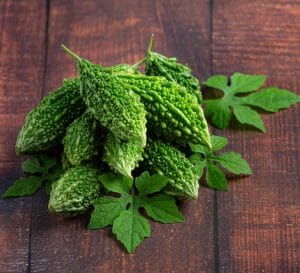This article is reviewed by an expert

Lychee, scientifically known as Litchi chinensis, is a delicious tropical fruit native to Southeast Asia. The tree yielding this fruit belongs to the Sapindaceae family. [1] Renowned for its unique taste and vibrant red skin, lychee fruit is a treat for the taste buds and a nutritional powerhouse.
Packed with essential vitamins, minerals, and antioxidants, this exotic fruit offers a wide range of lychee benefits for your health. Apart from the fruit, the lychee plant’s seeds, flowers, and leaves also come with pharmacological value. [1] In this article, we will explore the nutrition facts and various lychee benefits, focusing on the fruit’s primary and secondary benefits in detail.
Nutritional Profile of Lychee
Lychee is a nutrient-dense fruit that provides many vitamins, minerals, and dietary fiber. It is low in calories and contains no saturated fats or cholesterol. The table below shows the lychee nutrition values clearly:
| Nutrients | Values Per 100 Grams |
| Energy | 66 Kcal |
| Proteins | 0.83g |
| Total sugars | 15.2g |
| Fats | 0.44g |
| Dietary fiber | 1.3g |
| Carbohydrates | 16.5g |
| Calcium | 5 mg |
| Potassium | 171 mg |
| Iron | 0.31 mg |
| Magnesium | 10 mg |
| Phosphorus | 31 mg |
| Sodium | 1 mg |
| Zinc | 0.07 mg |
| Copper | 0.148 mg |
| Manganese | 0.055 mg |
| Vitamin C | 71.5 mg |
| Vitamin B6 | 0.1 mg |
| Riboflavin | 0.065 mg |
| Niacin | 0.603 mg |
| Thiamine | 0.011 mg |
Source: USDA
Benefits of Lychee
1. Boosts Immunity
Lychee is a powerhouse of immune-boosting nutrients. Lychee’s high vitamin C content strengthens the immune system, helping to defend against infections and diseases [2].
2. Supports Digestive Health
Lychee promotes a healthy digestive system. The dietary fiber in lychee and its high water content aid digestion and promote regular bowel movements, preventing constipation and supporting overall digestive health. [2]
3. Promotes Skin Health
Lychee contributes to radiant and healthy skin. The high vitamin C content in lychee promotes collagen synthesis, enhancing skin elasticity and reducing the signs of aging. [2]
4. Enhances Heart Health
Lychee supports a healthy cardiovascular system. The potassium content in lychee helps regulate blood pressure, reducing the risk of heart disease and stroke. Also, the antioxidants in lychee reduce oxidative stress and inflammation, contributing to overall heart health. [1]
5. Boosts Brain Function
Lychee is beneficial for cognitive health and brain function. The vitamins and minerals in lychee support brain function, memory, and concentration. Consumption of the fruit may protect the brain from age-related cognitive decline [3].
6. Regulates Blood Pressure
Lychee fruit benefits also include managing high blood pressure. The fruit is high in potassium and low in sodium. This attribute helps in managing high blood pressure or hypertension. [5]
7. Reduces the Chances of Cancer
The polysaccharides and polyphenols in the lychee fruit can prevent the growth of cancer cells and reduce the chances of developing malignant tumours. In other words, the fruit has shown remarkable anticarcinogenic effects in case of certain types of cancers such as breast cancer, prostate cancer, lung cancer, and liver cancer. [2]
8. Manages Diabetes
The various bioactive compounds in the lychee fruit can help in managing diabetes. Consumption of lychees has been seen to reverse insulin resistance and also manage the various symptoms of diabetes such as increased thirst, Increased hunger, frequent urination and excessive fatigue. [2]
9. Supports Healthy Aging
Oligonol and other polyphenols in lychee can delay the aging process by counteracting the damage caused by free radicals. Vitamin C in the fruit is also one nutrient that contributes to slow and graceful aging. [6]
10. Improves Liver Health
The lychee fruit benefits for the liver include the fruit’s ability to protect your liver against fatty liver disease and alcoholic liver damage. Also, the hepatoprotective properties of the lychee fruit can help nourish your liver tissues, eliminate toxins from your liver, and improve overall liver function. [4]
Best Ways to Consume Lychee
Lychee can be enjoyed in various delicious ways, allowing you to savour its unique flavour and reap its nutritional benefits. Here are some popular ways to incorporate lychee into your diet:
1. Fresh and Raw
The simplest and most popular way to consume lychee is to enjoy it fresh and raw. Peel the outer skin of the lychee fruit and gently remove the translucent flesh. The sweet and juicy fruit can be eaten as it is, providing a refreshing and delightful taste experience.
2. Fruit Salads
Lychee adds a tropical twist to fruit salads, enhancing both the flavour and visual appeal. Combine fresh lychee with other fruits like pineapple, mango, and berries to create a colourful and nutritious salad. You can also add a sprinkle of lime juice or a drizzle of honey for extra flavour.
3. Smoothies and Juices
Blend fresh lychee with your favourite fruits and vegetables to create delicious smoothies and juices. Combine lychee with ingredients like bananas, spinach, coconut water, and a splash of lime juice for a refreshing and nutrient-packed beverage.
4. Desserts and Sweets
Lychee’s sweet and fragrant flavour makes it a delightful addition to desserts and sweets. You can use lychee to make fruit tarts, sorbets, ice creams, and even lychee-flavoured jellies. Its unique taste adds a tropical touch to any dessert.
5. Canned or Dried
If fresh lychee is not readily available, you can opt for canned lychee or dried lychee. Canned lychee retains its sweetness and juiciness and can be used in various recipes. Dried lychee offers a chewy texture and concentrated flavour, making it a convenient and portable snack.
6. Lychee-infused Beverages
Lychee can be used to infuse beverages like tea, cocktails, and mocktails. Add a few lychee fruits or some lychee syrup to your favourite drink recipes to enjoy a hint of lychee flavour. It adds a delightful twist to your regular beverages.
Remember to choose ripe and fresh lychee fruits for the best flavour and nutritional value. Incorporating lychee into your diet through these various methods allows you to explore different culinary possibilities and enjoy its unique taste and health benefits.
Potential Lychee Side Effects
Though lychee is a nutritious fruit it can have some unwanted side effects as given below:
1. Lychee Toxicity
Over consumption of the lychee fruit may lead to encephalitis-related deaths due to the presence of a toxin in the fruit. That toxin is known by the name of methylene cyclopropyl-glycine (MCPG). [7]
2. Risk of Hypoglycaemia
The consumption of lychee fruit may drop your blood sugar to alarmingly low levels. This can be quite dangerous if you’re taking medications for diabetes. Toxic substances in the lychee fruit like hypoglycin-A or methylene cyclopropylglycine (MCPG) could lead to hypoglycaemia. [8]
FAQs
1. What is the best way to store lychee?
Fresh lychee fruits may be stored in an airtight container. The container should be kept in the refrigerator. The fresh lychee fruit can be stored for up to nearly a week. But, in the case of dried lychees, you can store the dried lychee fruits in an airtight container, which must be kept in a cool and dry place. The dry lychees can be stored for up to nearly two months.
2. What do the lychees taste like?
Lychees have a sweet taste and a slightly acidic flavor. Also, the fruit comes with a hint of floral aroma.
3. Is lychee a seasonal fruit?
Yes, lychee is a seasonal fruit. The fruit is typically available from the month of June to the month of September.
4. Can I eat lychee fruit at night?
Try not to eat the fruit just before going to bed, as lack of movement may cause a blood sugar spike.
5. Can I take lychee fruit in the summer season?
Lychee is a refreshing fruit packed with essential salts and minerals to replenish the lost moisture from your body due to perspiration in the summer months.
Conclusion
In conclusion, lychee is not only a delicious fruit but also a nutritional powerhouse with numerous health benefits. Its high vitamin C content strengthens the immune system, promotes digestive health, enhances skin health, supports heart health, and boosts brain function. Additionally, the antioxidants in lychee protect against oxidative stress and chronic diseases. Including lychee in your diet can be a tasty and beneficial way to improve your overall well-being.
Disclaimer
The information provided here is for general information and not meant to substitute any medical advice. Please consult your doctor for appropriate medical consultation.
References
- A Phytopharmacological Review of Litchi chinensis.
- Lychee (Litchi chinensis Sonn.), the King of Fruits, with Both Traditional and Modern Pharmacological Health Benefits
- Flavanol-rich lychee fruit extract substantially reduces progressive cognitive and molecular deficits in a triple-transgenic animal model of Alzheimer disease
- Litchi-Derived Polyphenol Alleviates Liver Steatosis and Gut Dysbiosis in Patients with Non-Alcoholic Fatty Liver Disease: A Randomized Double-Blinded, Placebo-Controlled Study
- Phyto-chemistry and therapeutic potential of litchi (Litchi chinensis Sonn.): An age-old ingredient in traditional medicine
- Phytochemistry and Pharmacological Properties of Lychee (Litchi chinensis Sonn)
- A recurring disease outbreak following litchi fruit consumption among children in Muzaffarpur, Bihar—A comprehensive investigation on factors of toxicity
- Unripe fruits of Litchi chinensis (Gaertn.) Sonn.: An overview of its toxicityFruits non mûrs de Litchi chinensis (Gaertn.) Sonn. : un aperçu de sa toxicité
























